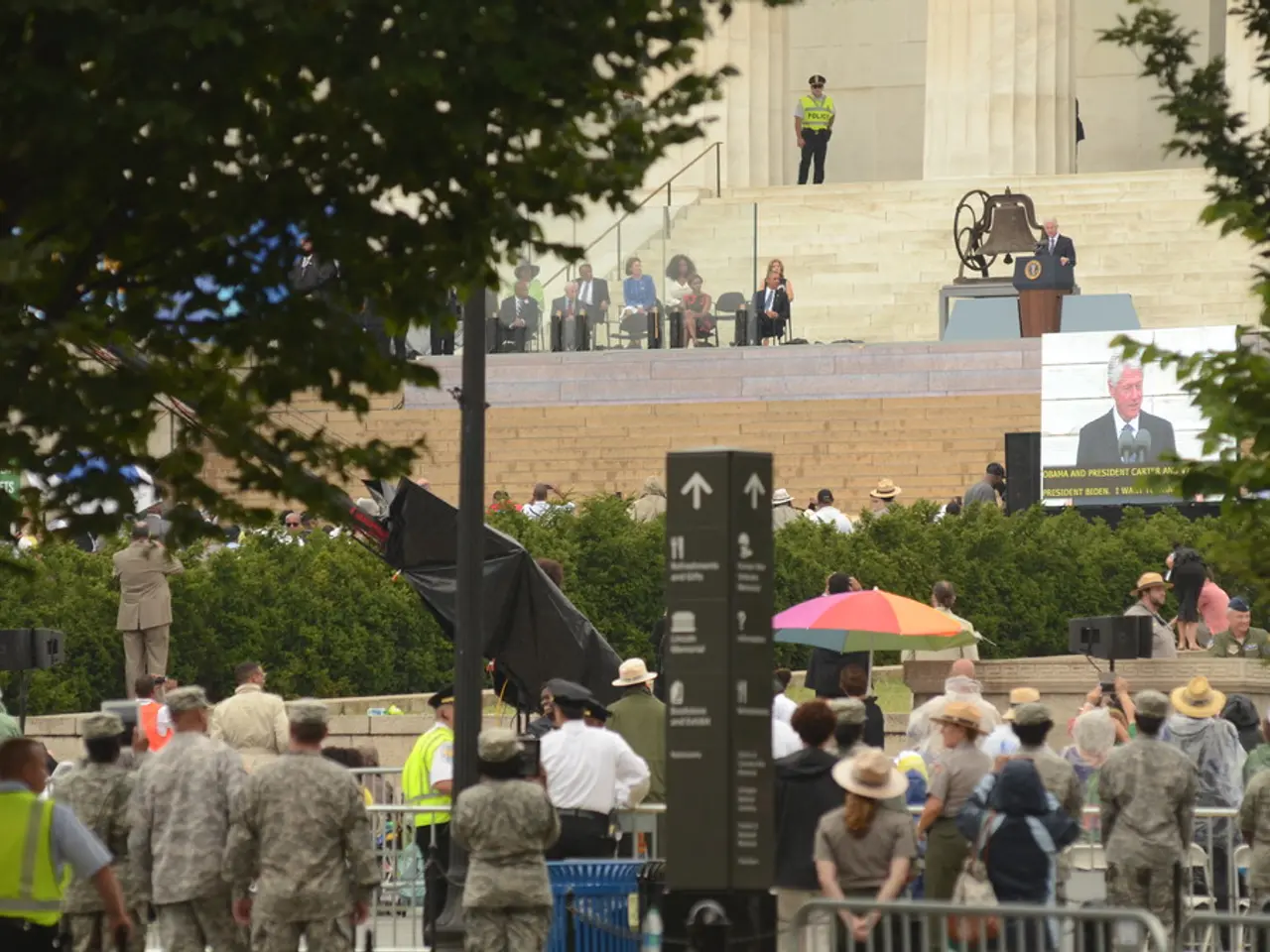Trump and his associates intensify efforts to influence the forthcoming midterm elections in the United States
The Trump administration, during President Trump's 2025 term, has been actively pursuing changes to election rules and increasing federal oversight of elections. One of the key initiatives is the "Preserving and Protecting the Integrity of American Elections" executive order, signed on March 25, 2025. This order mandates verification of U.S. citizenship for voter registration, improved identification of unqualified voters, federal assistance in determining voter eligibility, and prioritizes prosecution of election-related crimes [1].
In Colorado, while direct requests for access to election equipment have not been explicitly detailed, this executive order implies federal agencies will increase demands for transparency and control over election processes and technology nationwide. Local election officials, including those in Colorado, could face increased federal scrutiny and pressure to comply with these new mandates, potentially causing friction over election administration and data sharing [2].
Jeff Small, a principal with a Denver public affairs firm, contacted Republican election clerks in blue states, claiming to be helping advance Trump's executive order on election security. His outreach specifically targeted Republican clerks in blue states, and he mentioned gaining access to county's election equipment, which raised concerns among election officials [3].
The Republican-controlled House approved the SAVE Act in April, which mirrors parts of Trump's executive order requiring proof of citizenship to register to vote [4]. However, Small's actions were not authorized by the White House, according to a White House spokesperson [5].
Colorado election officials have heightened sensitivity around who can access election equipment, following the high-profile prosecution of Tina Peters. Peters, a former Mesa County elections clerk, was convicted on state charges for her role in a breach of her county's election system and sentenced to nine years in prison [6].
The Justice Department asked more than a dozen states in recent weeks to provide voter lists, explain their procedures for removing potential ineligible voters from their rolls, or discuss entering into information-sharing agreements to help the agency root out election fraud [7]. Colorado Secretary of State Jena Griswold declined to comply with a request related to records from the 2020 election from the federal government, stating they have no "legal basis" to seek it [8].
Election officials in Colorado continue to face high tensions over election administration, despite Trump losing in all three of his White House bids in the state. In addition to the threats and harassment, including an after-hours firebombing of an elections office housing Dominion machines, the state has also seen efforts like the rare mid-decade redistricting in Texas, following entreaties from Trump, aiming to take over five additional Democratic seats in the state's congressional districts [9].
As the election season approaches, it remains to be seen how these tensions and federal initiatives will impact the electoral process in Colorado and other states.
[1] Executive Order on Preserving and Protecting the Integrity of American Elections [2] Colorado election officials face scrutiny under Trump administration's election integrity push [3] ACLU: Trump administration's election security push could suppress voting [4] House Approves Bill Requiring Proof of Citizenship to Register to Vote [5] White House: Jeff Small's actions not authorized [6] Former Mesa County Clerk Tina Peters Sentenced to Nine Years in Prison [7] Justice Department seeks voter lists, election data from states [8] Colorado Secretary of State rejects federal request for 2020 election records [9] Texas redistricting: Trump's push for new maps could cost Democrats five House seats
- Despite increased federal oversight and stricter election rules under the Trump administration's "Preserving and Protecting the Integrity of American Elections" executive order, local election officials, such as those in Colorado, could face increased pressure and scrutiny, potentially leading to friction in election administration.
- In the midst of the 2025 election season and ongoing war-and-conflicts over election administration, the Justice Department has asked several states to provide voter lists, explain their procedures for removing potential ineligible voters, or discuss entering into information-sharing agreements to combat election fraud – a move that prompts general-news discussions about the potential for crime-and-justice implications in election processes.
- As political tensions and sports-betting continue to grow, sports-enthusiasts in Colorado are looking forward to the upcoming season, hoping that the elections and related controversies won't cast a shadow over their favorite competitions.







